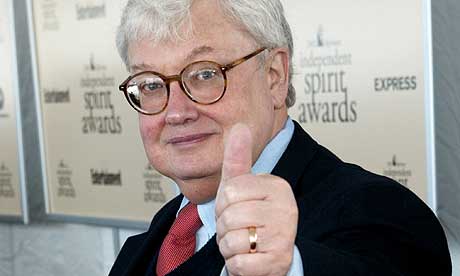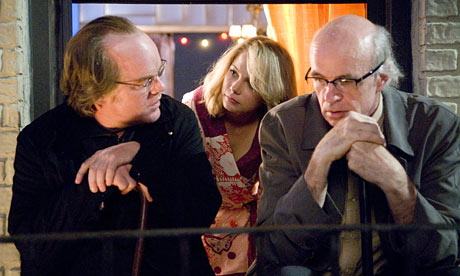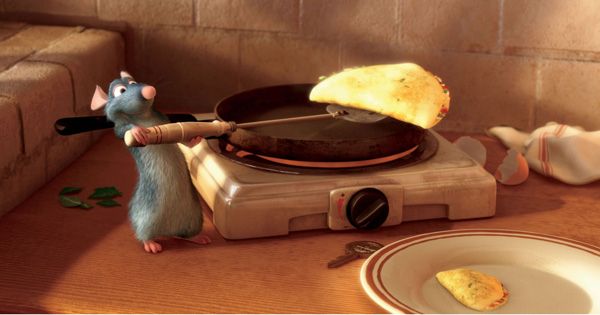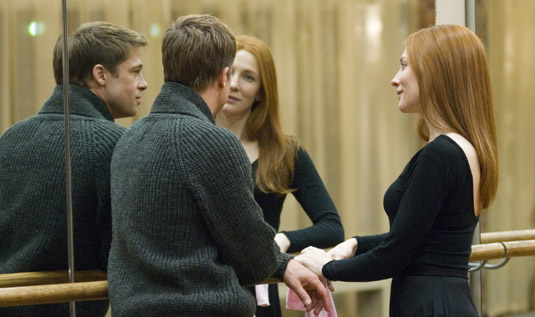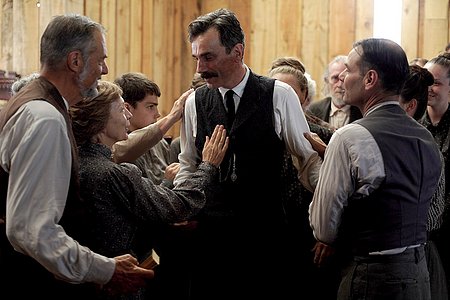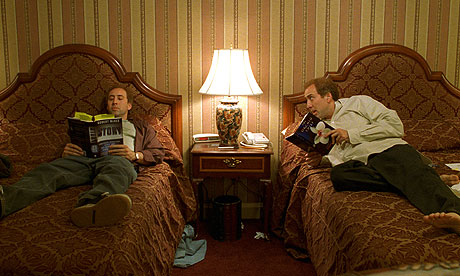
I know there are things I’ve missed. This is meant to be more of a stream of consciousness more than anything. Just trying to get end year thoughts out of my system. Skim-reading recommended.
As always, it seems to be the fashion of bloggers and journalists to reflect on the last year’s lot of pop culture. I suppose we delude ourselves into thinking an entire year of art, some mind-blowing, some mind-numbing, can be defined in a few hundred words. Yet, here I am, dutifully trying to make sense of 365 (366?) days of art. Why? Probably because stringing together single statements on the/my highlights of the year with segues is easier than designating them out for a detailed analysis. So for what little it’s worth, here’s my lazy reflection on a year in passing, for Games, Films and Comics. *Yawn*
Firstly, this year was an all-rounder of greatness, and a definite improvement over 2010. However, to get the most of it, it really did take a look in the cracks and crannies that people often ignore. If you got your hands a little dirty (AKA searched around on the internet a little more) then you would’ve been vastly rewarded, so much so that I pity those who routinely lapped up the mainstream stuff. Not that this year was lacking in mainstream quality. In films, there was perfectly fine blockbuster action with stuff like ‘Captain America’ or Steven Spielberg’s ‘War Horse. But that’s really all it was, ‘perfectly fine’ I felt the same way about War Horse in the theatre; an impressive piece of old-fashioned spectacle, but nothing more, with exploitable characters and emotions that tread well-worn formulas. More notably, we had Martin Scorsese’s ‘Hugo’ which I loved. However it’s devoid of pacing, and advances with groggy slowness, and is completely devoted to a Scorsese finding an outlet for his awe-struck love of movies, particularly those of George Melies. Its disregard for convention and personally fuelled existence makes me suspect it’s going to take a while to catch on, and will probably mean more to movie-buffs than to the children it was marketed to. Besides that, there was the mega event of the final ‘Harry Potter’ which was good but rushed, and Pixar’s very first failure in the form of ‘Cars 2’ which is filled with so much love and puns on classic spy films that I’d much rather watch a classic spy film. Speaking of spies, atmospheric director ‘Tomas Alfredson’ (Let the right one in) filmed an adaption of John Le Carre’s famous spy novel ‘Tinker Tailor Soldier Spy’ – a deconstruction of the James Bond myth, with a chillingly terse tone, and spies who’s faces bear the sadness of W.H Auden. Probably one of the best things to come out of this year.
However, if you looked in the cracks, you would’ve’ also found ‘Drive’ an arty act of virtuoso movie-making, dripping with the paint of 80s pulp movies and sexy Muscle Cars. It’s slow, showing its violence in devastating sporadic bursts, and adds more quiet intrigue to its characters than it does simple words or stock-roles. There was also ‘Take Shelter’ and ‘The Future’ which both shared a speculative dread for what is to come, whether it stagnation, or a disaster that ruins everything as it is now. They both feel like what would happen when people come to a comfortable, copasetic time in life. The Future in particular, is awkwardly uncomfortable and scary in how its upper-middle class characters begin to hurt themselves and each other. It’s so disconcertingly affecting in this way that I’m not sure I even like it. But it’s thought-provoking and irksome in a way that’s admirably powerful and brave.
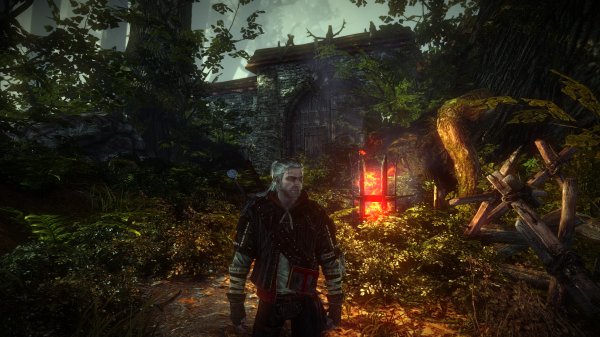
Unfortunately we didn’t get too many games that seemed to contain an auteur driven expression of soaring, earth shaking audacity like what we would see in this year’s ‘Tree of Life’ (Which I have not seen) I would say ‘El: Shaddai: Ascension to Metaron’ which combines Religious philosophy with flashy stupor-inducing techno-visuals comes close. Unfortunately, I can’t get fully behind it because I haven’t finished it yet. The combat system has a smooth balletic quality, allowing you to spin a yarn of moves with simple controls rather than overwrought combos. Unfortunately its combat is over-exhausted with a game that feels padded, especially at boss fights. So for now, I’m going to have to say it takes a sidestep just before it reaches brilliance.(As far as soaring ambition goes, there’s also XenoBlade, a game that appears as the next evolution of JRPGS, but I haven’t got to play it yet) Other ambitious (and also big-name events) for gaming this year included the expansive Fantasy epics ‘Elder Scrolls V: Skyrim’ and ‘The Witcher 2’ They’re well-worth the time, but The Witcher is still a sequel to a 2007 game, and Skyrim does what the creators have strived to do since the first Elder Scrolls game. Still, The Witcher 2 is a strong push in the right direction for RPGs. Its choices are presented naturally through the narrative, as opposed to big ‘point of no return’ forks in the road, and the conflict is not lazily thrown onto some evil coming over the hill, but all through the politics and relationships of its startlingly human characters. And the feeling I have when I want to play Skyrim is the same as when I want to take a walk in the park. It doesn’t exactly work as a game, but it sure as hell does as a place. A place to be, to wander, and to witness, all for the sake of its natural beauty.
Most impressive to me though, was, again, easily missed small-hits. Probably indie title ‘Bastion’ was the best, a tragedy both elegiac and inspiring, wrapped in the tightly fitting clothes of an old-school Zelda-like adventure. Back a second- Those tightly-fitting clothes are so remarkably crafted that Bastion really draws attention to the uneconomical, overstuffed mess of mainstream games. It seems it’s now in fashion to be bigger, even when it’s not better. Most guilty of this are Uncharted 3 and Assassin’s Creed: Revelations. With Uncharted, developers Naughty Dog show how little they seem to understand their own games. It was not the shooting, or overwrought explosive set-pieces that made the original game so captivating, or the second games so obsessively playable. But it to them it is, with manufactured Hollywood inspired explosion after explosion, gun shot after gun shot, and faceless hoards of baddies for the hero to kill. Uncharted used to be a fun as an interactive tribute to old pulp cinema; the kind filled with lost islands, cocksure heroes, and silly villains. With the third game, it’s become more of a tribute to the by-the-numbers system of Hollywood, spewing out manipulative action ‘comedies’ with plot holes that have swallowed up most of the actual plot. Uncharted 3’s script has so many traits people would recognize as a sign of bad writing. Most people would also only need one of them to make up their mind. And don’t get me started on how it depicts London.
Revelations on the other hand, is more tragic because Assassin’s Creed was to this point one of the best things I could hope to play. Unrivalled in cultural and historical artistry, the panache of its animation, and flavour of all its vast characters. The story is best dismissed, but I don’t think I’ll ever forget Ezio’s smarminess. The first game was ascension of new generation tech, and also the erudite lengths creators in our medium could go. Number 2 (the peak of the series) painted on beauty in the form of Renaissance Italy, and a washed-out visual style that made the game like a moving water-colour masterpiece. The third (Brotherhood) added a multiplayer about brains and observation, drawing attention to the infinitesimal subtleties of its animation and A.I behaviour. What’s Revelations gift to the prosperous series? Grenades. Grenades?! Yes grenades. And grenade crafting. Riveting. So now, instead of taking a carefully calculated plan of navigating architecture to get behind the enemies, you can just blow them up from afar. Revelations adds nothing but clunky artifice that resembles the cooperate Coca-Cola gaming of Call of duty, betraying the serene and innovative beauty of the earlier games. The artifice is also present in Assassin’s Creed’s increasingly bloated and arbitrary monetary system, and this what games like Bastion work as a counter to. Also a counter: Rayman Origins, an onomatopoeic cartoon platformer that has the rare quality of evoking Dr. Seuss or The Beatles more than it does Mario or Megaman.
Oh, and we shouldn’t forget the early year joys of LittleBigPlanet 2 and Portal 2. Did you like these 2’s too? While I haven’t played LBP2 as much LBP1, I do believe it’s objectively better. It’s more of a game-sized expansion than a completely different game, with all of the previous title still there. It also manages to find a way to extend its tools to fill in the gaps our imaginations were previously needed for, but without cutting away the first games innocuous toybox charm. To accompany this is a first-rate single player, with kooky levels and kookier characters. Each world itself is basically an indulgence of a characters personality, and they’re all so detailed and lathered that they could each serve the setting for an entire game. And I hope I never forget Larry Da Vinci, who is exactly as he sounds; an amalgam of the erudite wise guru and a modern unpretentious hipster. That’s LittleBigPlanet in a nutshell. The finest of old-school platforming dressed in affably modern hipster clothes.
Portal 2 on the other hand, was not as well- paced as the first, nor as chilling, dignified, and sublime. Indeed, Valve’s passionately bubbling tribute to science and its affecting capabilities, is flawed in some areas. But then, look at what I just wrote. That’s enough to be great. And I know I will never forget Stephen Merchant as Wheatley, a moronic mouthy robot whose purpose and aim as a character runs in circles like an on/off switch. He is a robot, after all. But whatever status he is, he’s always the same endearing mouthy moron, filled with more of a personality than most organic video game characters.
Things I haven’t got around to: Deus Ex: Human Revolution, Batman Arkham City, Ghost Trick: Phantom Detective, Golden Sun, and probably others that have slipped my mind.
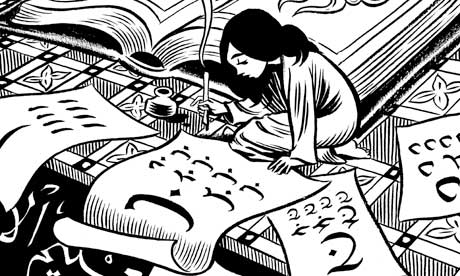
Comics seem to be following a similar pattern. There was still high-quality joy in the mainstream; Scott Snyder and Jock’s ‘Batman: The Black Mirror’ used Gotham City as a mirror for the new Batman (Dick Grayson) which his perfectly suited to the reflexive impressionist swipes of Jock. There was also Mark Waid’s lark reinvigoration of Daredevil. Both were great, but they’re not mainstream as can be, Daredevil being a bit of a niche character by Marvel standards, and Scott Snyder being something of a newcomer on the mainstream superhero scenes. The year also seemed to lack big work from the biggest names, like Geoff Johns, Grant Morrison (who are both part of DC’S new reboot, but that’s still in a warming up phase) or Alan Moore. If we were to expand our horizons, then we would see Craig Thompsons sumptuous ‘Habibi ‘an exploration of Arabic culture and myth. It engages both sides in this, the low-brow exploitation side and the high-brow artistry. Fiction that captures both ends of our mind; aesthetic desires and intellectual meditation is to me, the most honest kind of fiction. Also: American Vampire (Scott Snyder) and Criminal: The Last of the Innocent (Ed Brubaker), both of which I missed.
Let’s backtrack to DC’s big reboot. It was okay, on the whole. There’s enough good to justify it, though admittedly superhero comics are so self-indulgently stagnant that a reboot on this level would be justified anyway. Something I noticed however, was the best of it was art driven. The writing is fair, but it’s more of a crutch to the art (like what J.H Williams is doing with the Ghostly ‘Batwoman’ or how Francis Manapul uses his panels to depicts the infinitesimal vibrations and movements of its hero in The Flash) The rare moments where it doesn’t: Jeff Lemire’s Animal Man, Scotty Snyder’s Batman, and Grant Morrison’s Action Comics. These contain a half-way meeting point between writing and art, and it’s part of why they’re so good. It’s also interesting to notice that the comics where the art is a crutch to the writing (Geoff Johns’ Justice League) is usually much less readable than the art being the main force. Perhaps this tells us something about the nature of the medium. Geoff Johns in particular is a writer who prefers a Hollywood screenplay style of writing, with back and forth, naturalistic conversation building a world rather than a quickly progressing plot. This is all good and well if you take in the entire story in one well-paced burst, but these are comics. Reading this style of comic writing is like getting a ten minute slice of a Hollywood blockbuster every month. Probably better to read it when it’s released a collected trade, or ‘Graphic Novel’
One comic of the new DC reboot I haven’t made my mind up on, is Wonder Woman. Again, it’s among the best, but more for art than writing. It’s a joy to see Cliff Chiang reimagine the Greek pantheon in a slick 21st century ink. And writer Brian Azzarelo is good in staging his battle sequences (or should we be thanking the artist?) His script is an attempt to subvert the Greeks Gods, which is an idea I love, as I’ve done it myself, But so far, he hasn’t done anything more subversive than a stage play I handed in for my eleventh year of British schooling, which is kind of strange. Cause, yknow, he’s an adult with a lifetime of experience, and I’m not. And he’s being paid, and I’m not. His renditions of the Gods definitely sting with decadence, but they also hold enough glamourized reverence that they remain the same power fantasies they were before any subversion. Personally, I would’ve made a satirical mockery of them, not showing Ares as slick, but rather a drunken fool getting into bar-fights (off the top of my head) Then, I would build up the story and characters in a way that eventually reflected the power and essence of the old Greek myths. That would be the final point; somehow we got from a drunk abusing his god powers in silly bar fights, or a king that sleeps around a lot, to a massive-earth shattering scale of Gods. The myths may seem big to us, but they were born in stupors and intimate flesh. To make a mockery also, is I think the kind of jolt the Greek Gods need, especially with how much they’re blandly re-written with a ‘modern day’ concept. Just as long as the satire was actually going somewhere. Still, Wonder Woman is good, and far better than the overbearing tumult the series was before the reboot.
That’s enough I think. *Yawn*
What do we take from this? The often preached argument of keeping a varied pop-culture diet, comes to mind, but I don’t see much point in forcing people to examine the indie and arty when they don’t want to. Instead, I would advise you go with what the wind brings you, rather than what the billboards tell you.
- A rather ashamed Taha





